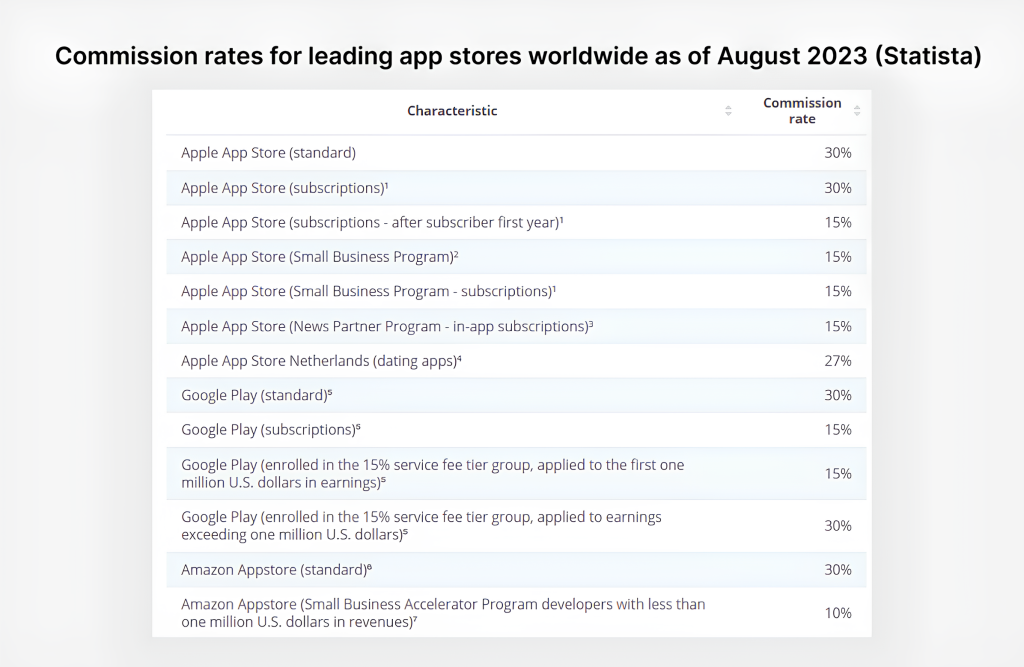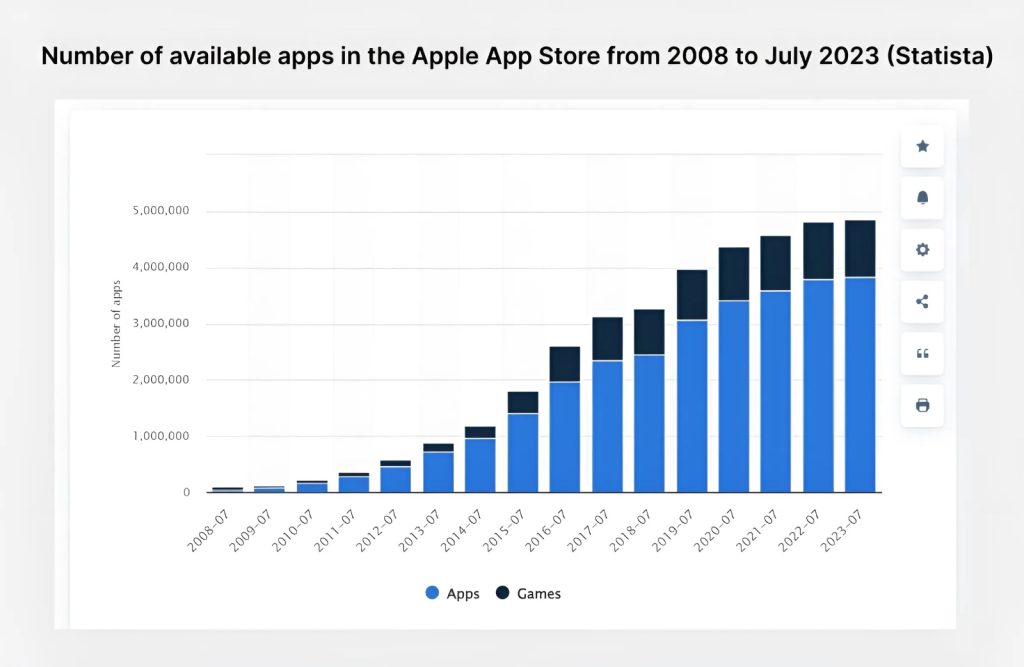Apple Allows iOS Apps to be Downloaded Directly from Websites in EU
Apple has made some changes to the way its App Store works to conform to the European Union’s Digital Markets Act (DMA). The corporation will now have to give its users the ability to download third-party apps from other app stores, allow in-app purchases, and introduce new business terms.
More specifically, Apple has agreed to launch a feature that will allow developers to let users download their apps directly from their websites instead of the App Store.
In this post, we are going to talk about what these changes mean for consumers and developers, and whether there are any risks.
Apple now allows EU-based developers to let users download apps directly from their official websites. Users in the EU also have more freedom now as they can download apps from third-party app stores and use other payment methods for in-app transactions. The reason why Apple has had to make these changes is because of the European Union’s (EU) Digital Markets Act (DMA), whose purpose is to prevent anyone from restricting content on devices.
Previously, the App Store was the only authorized channel for iOS devices, which allowed Apple’s revenues to continually increase as the company charges developers a 30% fee.

The App Store has over 3 million apps, making it one of the most popular app providers in the entire world.

In the second quarter of 2022 alone, the Apple Online Store reported a revenue of 22 billion US dollars, twice as much as the revenue generated from Android users on the Google Play Store.
Considering how much money it brings in, it’s only natural for Apple to worry about the changes they have to implement. Allowing downloads from third-party stores could negatively affect Apple’s revenues.
Eligibility and Requirements for Developers
Apple has set out some conditions for developers if they want to offer an installation platform exclusively for their apps. Here are some of those conditions:
- Be a part of the Apple Developer Program as an organization that’s incorporated, domiciled, or registered in the EU.
- Be a “member in good standing” for the program for two years or more.
- Have developed an app that had more than one million installations on iOS in the EU in the previous year.
- Apps must only be offered through a developer account.
- Let Apple know about any fraudulent, malicious, or illegal behavior or anything that has the potential to affect the safety or security of the users.
- Be transparent with the users about how their data is collected through the app.
- Adhere to the laws of the jurisdictions where your apps operate, such as the Digital Services Act and the General Data Protection Regulation.
- Pay a “Core Technology Fee” of €0.50 per user per year after an app reaches one million installs.
Apple refers to this feature as “Web Distribution,” and it will be available in iOS 17.5. When downloading an application from outside the App Store for the first time, users will have to approve the developer in the iPhone’s settings. This will involve permitting by tapping “Allow” on multiple pop-up windows. Once approved, they’ll be able to download apps from the developer easily and quickly.
It’s clear that Apple is limiting Web Distribution to big developers because of the prerequisite of having software with over one million installations on iOS. While the feature is great for those developers who are willing to comply with Apple’s restrictions, about 90% of them won’t have access to it because of their inability to meet the one million installation requirement.
Chances are, the EU DMA will have little to no effect in the end because of Apple’s strict requirements.
Users at Increased Risk of Cyber Threats Due to EU Rules?
Apple has said that downloading apps outside of its official store can result in increased cybersecurity risks for users. According to the corporation, the DMA-mandated changes could open up “new avenues for malware, fraud and scams, illicit and harmful content, and other privacy and security threats.”
However, experts have said that these claims should be viewed with skepticism as it’s in Apple’s best interest to get people to download apps from the official store.
“Apple’s App Store is not a proxy for corporate data security - apps within it regularly send data to insecure cloud servers, to hidden third-party trackers, and much more.”— Michael Vale, an associate professor at University College London
“Of course, there are malicious apps that manage to circumvent app store approval, apps that harvest data in an unauthorized manner that open your device to security vulnerabilities that have been readily available in the official Apple App Store or Google Play Store”.— David Richardson, vice president of threat intelligence at Lookout made a statement to SC Media
What this means is that downloading from the App Store is nowhere as safe as Apple claims it to be. Just like every other app store, it can also infect your device with malware and track your activities.
Apple has always claimed that its “highest priority” is to create products that provide the best user experience, which may be true, but it doesn’t mean that the company is capable of completely removing all risks associated with using its products and services. Considering how many apps there are on the App Store, it’s inevitable for a few bad apples to slip through the cracks. Plus, cybersecurity threats are evolving at a very fast rate. Malicious parties are always looking for new ways to exploit vulnerabilities.
However, it’s also important to acknowledge that it’ll be much more difficult to verify apps outside the App Store, and it won’t be easy to track them. You’re always open to greater risks when downloading apps from sources other than the App Store.
If you’re in the EU and you plan to download apps from outside the App Store, then you’ll have to proceed with caution. Do thorough research before you download any app and always download from developers who have a reputation for reliability and security. Keep yourself informed about recent security threats so you always stay one step ahead in keeping your iOS devices safe.
What About Other Countries?
There is a possibility that other countries could introduce similar rules, but at the moment, Apple still has no plans to allow users who are based outside the EU to download apps from other sources. The company continues to raise concerns that the DMA will lead to problems that will compromise users’ security, especially in industries like defense, banking, and emergency services.
According to Apple, they’ve already started receiving complaints from government agencies saying how sideloading could compromise the security of their employees.
It is because of these reasons that it is highly unlikely for Apple to introduce DMA-like regulations in other countries.
To Sum Up
Apple has its hands tied in the EU and it has no choice but to comply with the regulations introduced by the EU’s DMA. If you’re in the EU, then you’ll soon be able to download apps from third-party app stores and the official apps of certain developers.
There are certain conditions that developers have to meet, which sort of defeats the purpose of the DMA. Nevertheless, it’s a step forward for the industry.
Unfortunately, we still don’t know if other countries will follow suit, but at the moment, Apple doesn’t seem to have any intentions of implementing similar rules outside the EU. Is there a possibility that the company might consider allowing users to download from unofficial sources in the foreseeable future? That’s something only time will tell.
